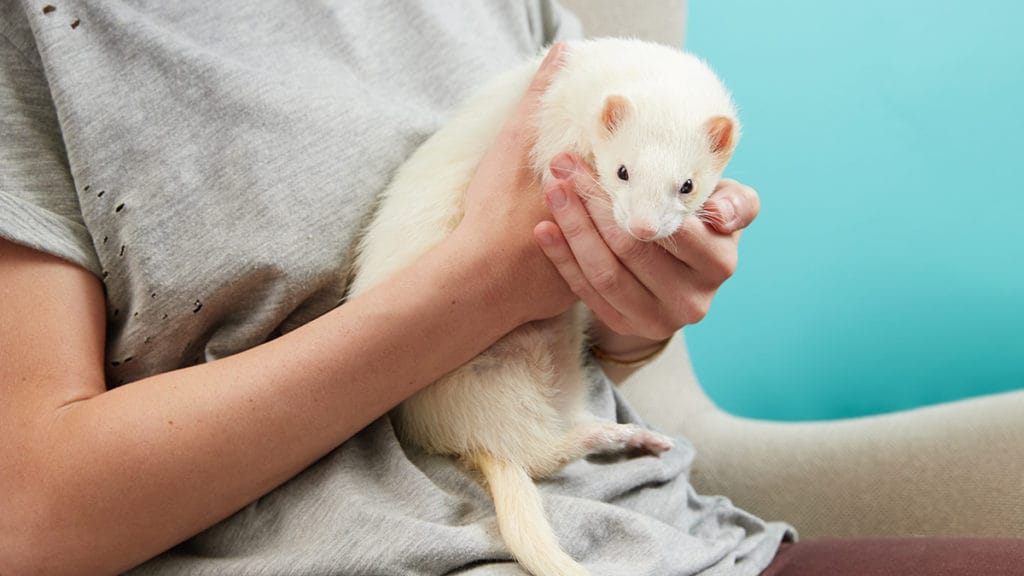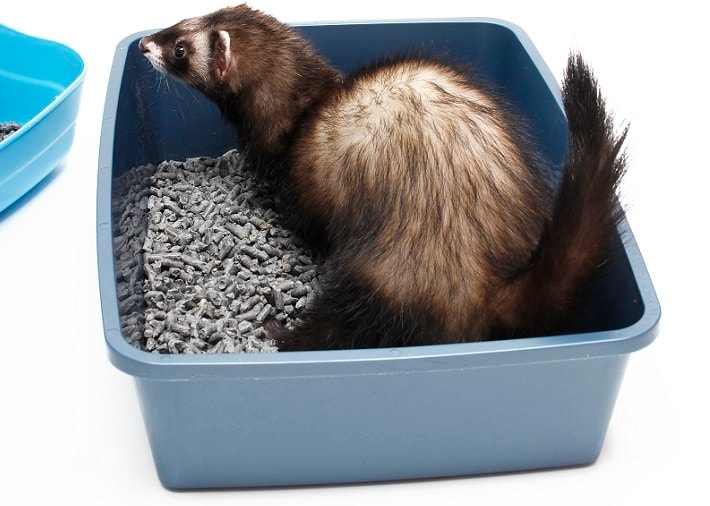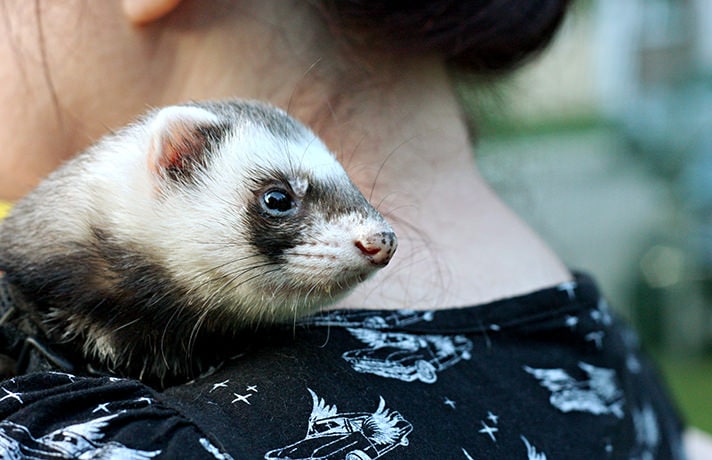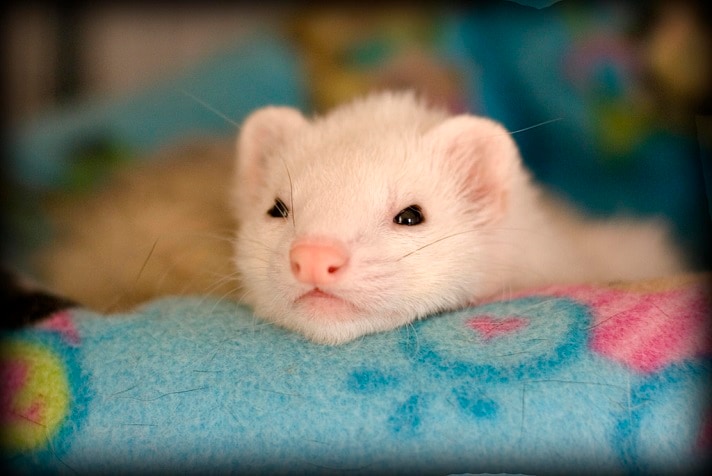Ferret Care: Grooming Tips and Supplies
Ferrets are inquisitive, intelligent, amusing and, of course, adorable! As cute as these increasingly popular, petite-size pets are, before you bring one home, you should be aware that ferret care is a bit specialized and requires specific ferret supplies. True, ferrets don’t need to be walked in all kinds of weather like a dog, but there’s still plenty you need to know about how to care for ferrets as pets. One of the most important aspects of ferret care is grooming. Stephanie Kegel, director at the American Ferret Association, breaks down the process, so you can keep your ferret healthy and happy.
-
Check your ferret daily for any grooming needs.
If you make this a habit, it will make ferret care that much easier in the long run. Simply look over your ferret when you handle and play with her.
“Especially go over their coats to make sure there are no patchy areas,” Kegel says. “That could be a sign of a health issue going on, such as parasites.”
Additionally, Kegel notes, making this a regular practice keeps your ferret completely comfortable with being examined and groomed. This helps with veterinarian exams or even being judged in shows. (Yes, there are ferret shows, which Kegel says are a “blast! The ferrets have a great time, and it’s interesting meeting folks who have been involved for decades.”)
-
Clip your ferret’s nails once a week.
It’s possible you may need to trim your ferret’s nails even more often if her nails grow really fast. Here’s an easy way to get the job done, according to Kegel:
• Lay your ferret on her back in your lap.
• Place her favorite liquid treat (perhaps salmon oil or Furo-tone) on her belly.
• Let her lick it off as you trim away.
Be careful not to cut the quick, a red vein inside the nail that will bleed if nicked.
-
Clean your ferret’s teeth at least once every two weeks.
To prevent plaque build-up, especially in ferrets who have a kibble-based diet, it’s ideal to brush them more often.
“Use a ferret-friendly toothpaste; never use human toothpaste as it’s not safe for pets,” Kegel says.
Marshall Mint Dental Gel With Baking Soda leaves mini mouths smelling fresh. Use a rubber finger-brush to go over each little tooth. This is a part of ferret care that can’t be neglected.
-
Clean your ferret’s ears once every two weeks, at least.
To clean a ferret’s ears, dampen a cotton ball or swab with a ferret ear cleaning solution recommended by your vet. (One to ask about is Bodhi Dog Aloe Vera Dog, Cat & Small Animal Ear Cleanser). With it, gently loosen debris from the outer ear. If you’re using a swab, be extra careful not to push it too far into the ear.
If the debris is extra tough to get out, putting a couple of drops of the ferret ear cleaning solution directly into the ear and gently massaging will help loosen the wax.
“Just note that if any debris is extremely dark, almost black, it may be a sign of ear mites or infection,” Kegel says. “It would be worth having a veterinarian take a look.”
-
Give your ferret a bath once every three months at most.
As far as bathing goes, it should be done infrequently.
“Ferrets are very good on keeping up appearances themselves, being a lot like cats in that way,” Kegel says.
Even the cleanest, healthiest ferrets have a slight earthy, musky scent about them. It’s perfectly normal, and excessive bathing will actually make it worse.
“Bathing too much can strip protective oils from their coats, and actually cause more of a funky odor as their bodies make even more oil to replenish what was washed away,” Kegel explains.
Of course, if your ferret has gotten into something yucky and is truly dirty, bathe her, but otherwise, even once every six or 12 months is OK. (If ferrets’ natural scent bothers you, changing bedding twice a week and keeping litter boxes clean will cut down on the smell as much as possible.)
When you do bathe your ferret, use warm water—test it first as you would when bathing a baby—and a shampoo made for ferrets. (Marshall Tea Tree Shampoo for Ferrets has spearmint to reduce odor.) Avoid washing the head and eyes, and focus on the abdomen and tail area. Using a massaging brush made for small animals, such as the Glandex Furbliss Short Hair Dog, Cat & Small Animal Brush, is an easy way to pamper your fur baby.
It’s important to rinse thoroughly, since shampoo residue will itch and irritate her. And while it’s not a must, “I personally like using a conditioner to help keep their coats lush,” says Kegel. The moisturizing, coat-conditioning formula of Marshall Ferret Daily Spritz leaves your little wiggler smelling like baby powder.
Now that you know the best ferret supplies for grooming and the basics of ferret care, keeping your ferret clean and healthy won’t seem hard at all. Have fun with the new ferret in your family!

Christina Vercelletto is a pet, travel and lifestyle content specialist and a former editor of Parenting, Scholastic Parent & Child, and Woman’s Day. She lives on Long Island with her Chiweenie, Pickles, and 20-pound Calico, Chub-Chub.
Share:

















